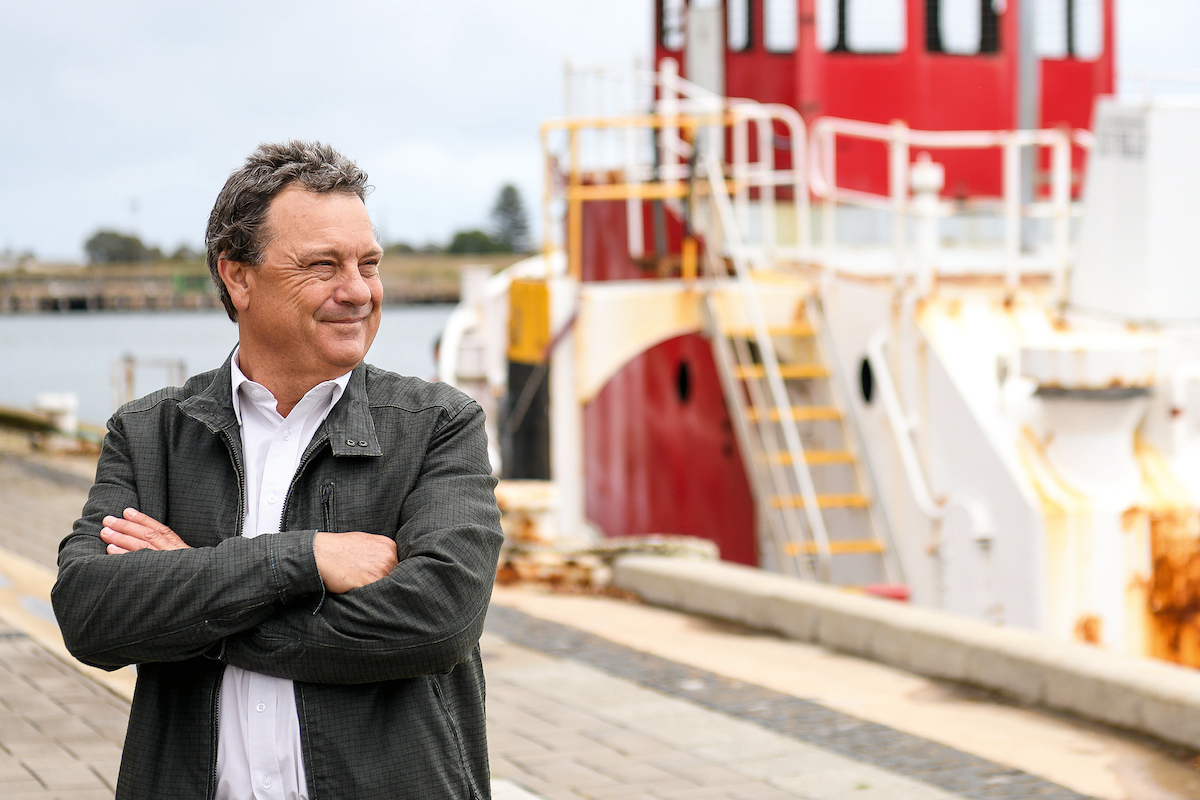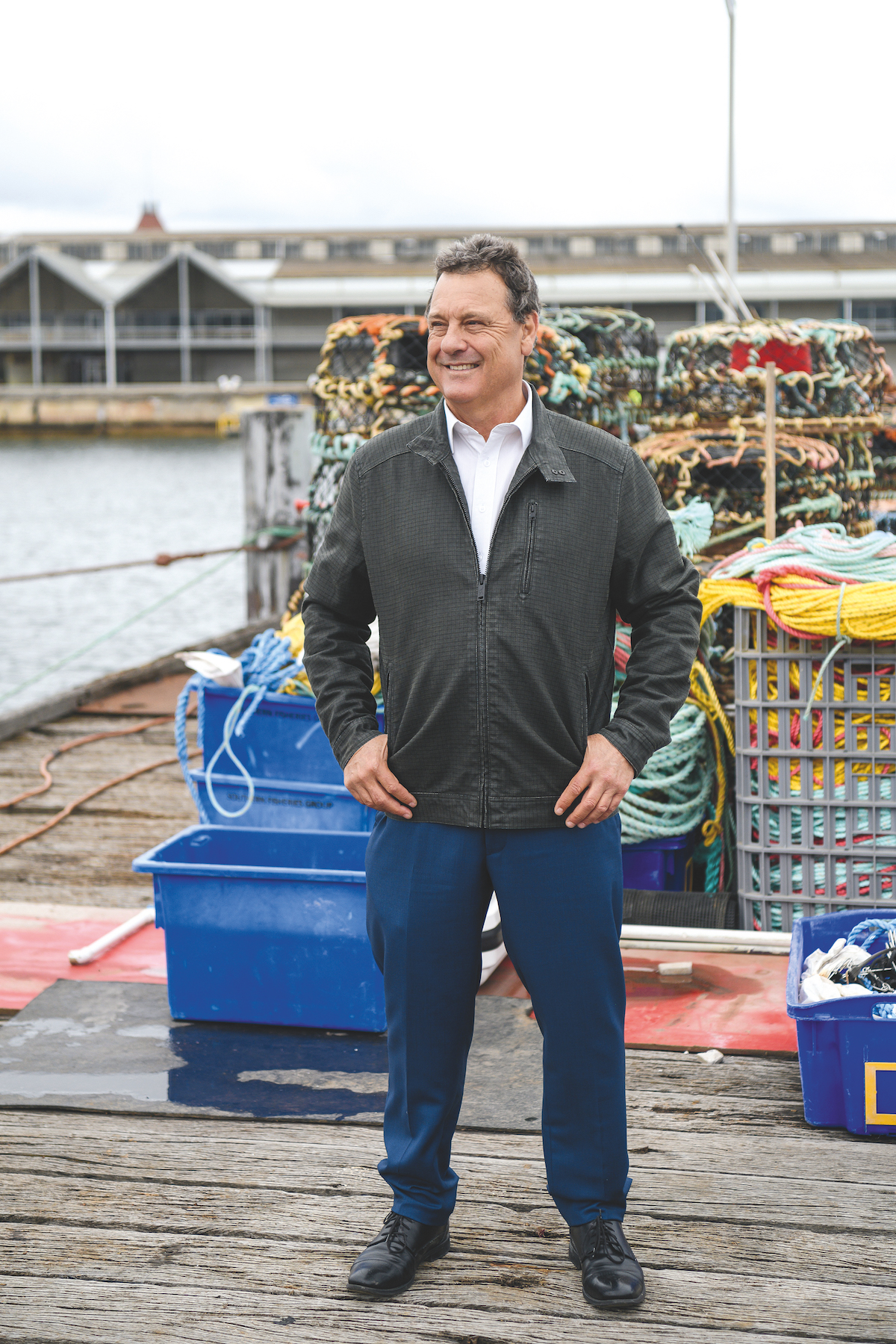For five decades, the Stehr family has been providing Australia and abroad with fresh, succulent and sustainably fished southern bluefin tuna. As the son of Stehr Group’s Founder and Chair Hagen Stehr, Marcus Stehr was afforded an intimate firsthand look into the fishing and aquaculture industry from an early age. Today, as the Managing Director of the company, he feels immensely proud to be part of such a legacy.

“We’ve been able to overcome a lot of hurdles,” he tells The CEO Magazine. “I’m proud that I’ve got three generations in the business now, and I know there’s a solid foundation and future for us. I’m proud of our staff and proud of our infrastructure. I think in order to truly thrive in a business like this, you need to love the business, and you need to be passionate about it.”
This family mentality extends beyond bloodlines too, with Marcus enthusing that the people-first culture at Stehr Group means all employees feel valued and supported. “Having people working for us from 20–30 years tells a story in itself,” he says.
“When we recruit staff or when we offer positions to people, we always look inside our operations first. You need to have processes in place to reward your staff and give them the ability or flexibility to promote good people throughout your business. We have staff that started as crew members, and they’ve gone on to be engineers and skippers and divers.
“Having short-term and long-term incentives also plays a big part. It’s about bringing a number of elements together and communicating and working close with your staff. I’ve always been of the opinion that you’re only as good as your weakest link.” Since its humble beginnings in 1972, Stehr Group has garnered a reputation as one of the industry leaders – not only because of its high-quality product, but also the company’s constant and continuing quest for innovation, which was truly put to the test during the COVID-19 pandemic.
In order to truly thrive in a business like this … you need to be passionate about it.
“Farm automation has helped us substantially because it gives us the flexibility not to have to run our vessels every day to feed the fish,” Marcus explains. “Our feed managers are able to work from home, from their TVs, laptops and phones, and actually distribute the feed into the cages. We’ve got robots called ROVs to take images of the fish swimming around, so the divers don’t actually have to dive into the cages every day. We utilise technology and farm automation with our feed silos, pipe feeding and blow feeders, which in turn has enabled us to run the business better, especially during the pandemic.”
As it continues to adapt and evolve, Marcus is driven to find ways to continue expanding the business and its offerings. As part of this strategy, over the past 18 months Stehr Group has banded together with three of Port Lincoln’s other leading tuna companies to form another company KIN Seafood.
“Because the industry has been run for so many years by the older generation, the actual pioneers of the industry, to get to where it is, of course you need that competitive tension,” he admits. “However, things have changed now, and we’ve got to work differently. We’ve got to work more intelligently and we’ve got to pull together. There are so many areas, so many things we can do as a collective to enhance our prices and enhance the product. Together, we’re much stronger than fighting with each other.”
In the last 12 months, Stehr has been focused on working with two other companies and can see benefits from this approach. “In an operational sense, we can have one farm site instead of three, one set of divers instead of three, one aircraft instead of three, so we can make substantial gains,” Marcus points out.

“For so long, we’ve only ever concentrated on fresh, gilled, gutted and frozen for the Japanese market. Now we’re doing all this product development and looking for new, fresh, inspiring markets. We’re looking at how we can enhance what we’re doing with tuna as well as looking at different types of fisheries for new offerings. We’ve got product going to North America, Europe and South-East Asia too.”
At the same time, one of Stehr Group’s biggest priorities has always been, and always will be, its commitment to the long-term sustainability of southern bluefin tuna. With A1 fishing and farming practices, first-class accreditations and even an international sustainability certificate by not-for-profit non-governmental organisation Friend of the Sea, it’s clear that the company is acting with the longevity of the industry in mind.
The fish are caught in the Great Australian Bight using the highly selective ‘purse seine’ method, which causes no destruction to marine habitats. From there, they are moved into towing pontoons and relocated to ranching pontoons in Port Lincoln for a further six months.
Every single fish is tagged, and the weight and length recorded and collected for the Commission for the Conservation of Southern Bluefin Tuna. Now, as Stehr Group welcomes in the next chapter, Marcus says the company will be continuing to evaluate how it can set itself apart in this highly competitive industry, while simultaneously harnessing the power of its collaborative dynamic.
“I would like to expand our operations so that we’ve got more of a grasp on the final processing of our fish – so it’s almost from hook to plate – and that we’ve got good freezing and fresh product processes in place, and good cold chain logistics for all of our products,” he says. “It’s about working together, being environmentally friendly and being absolutely sustainable. I think the tuna industry is still in fantastic shape – and it’s about us, the creators of the industry being able to manage it and take it into the future. We’re not going anywhere.”
Proudly supported by:



